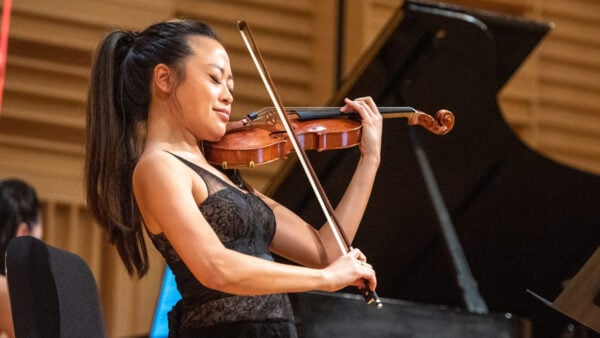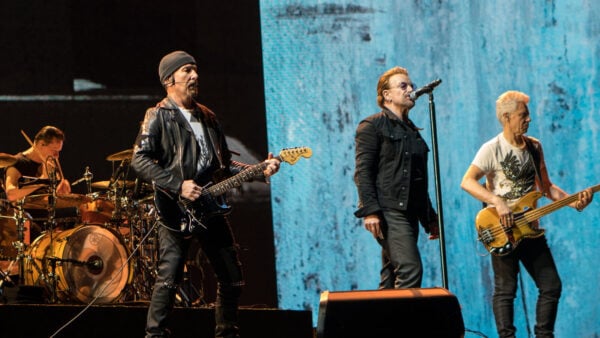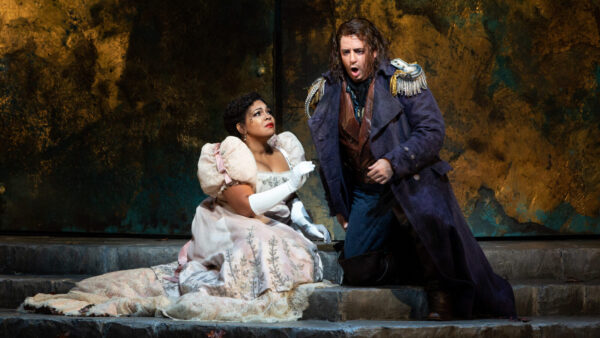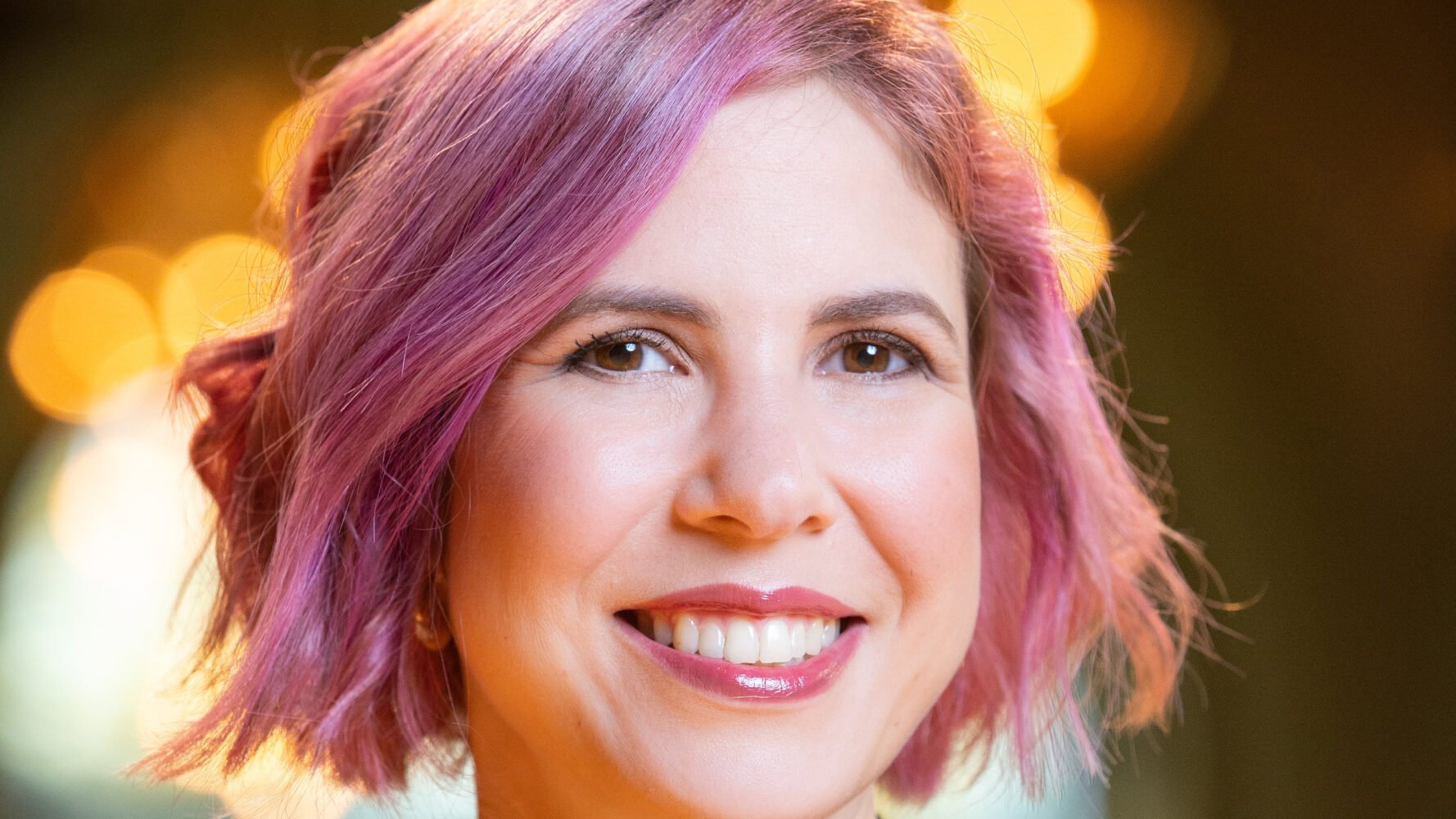
Liza Malamut (Photo: Elliot Mandel)
It’s been a year of transition for one of Chicago’s renowned early music institutions. The Newberry Consort is in the midst of a season that it’s fittingly dubbed “Crossroads.”
Hailing from a musical household on the East Coast — her mother taught music at a small university in New Jersey, and her father an enthusiast baritone — Liza Malamut grew up playing trombone and piano, and her brother, a drummer, “was in this awesome fantasy metal band.”
Malamut expected to pursue a career in a symphony orchestra. But in undergrad, she discovered a fascination with polyphony and a love of chamber music, “which is very much an element of early music performance.” Confronted with a crossroads of her own, Malamut switched from the trombone to the sackbut, (the instrument’s forebear, which is also called the Renaissance trombone) and set off on a journey of early music.
That path has led her to Chicago, where she is midway through her first season as the new artistic director of early music ensemble the Newberry Consort, taking over from longtime directors and ensemble members David Douglass and Ellen Hargis.
Newberry’s March concert, Oracles, Prophets, and Dreams, sees Malamut and co. tapping into Renaissance repertoire and combining vocalists with strings and winds for an intriguing program. We spoke with Liza Malamut for her reflections on her new role, this upcoming concert, and her vision for the ensemble.
WFMT: We are speaking about halfway through your first season leading the Newberry Consort? How has this very transitional season gone, and how has it been settling into a new role and a new city?
Liza Malamut: I lived in Boston for 15 years; my roots were really entrenched there. I had only performed in Chicago a handful of times. People here are incredibly welcoming and kind, and I’ve been grateful that people have reached out to me for playing opportunities and scholarship. It’s been nice to connect with people here and continue to collaborate and build relationships.
It’s a huge learning experience; the previous directors have such an incredible amount of knowledge and institutional memory. So it was a bit intimidating at first. But especially Ellen has been deeply involved in the transition. And the organization has been very supportive; it cares very deeply about what we’re creating and how we’re building with the greater Chicago community.
WFMT: You have taken the reins from a vocalist and a string player. Do you think your background as a wind player brings a new perspective to the ensemble?
Malamut: I think it has been fascinating because I have a different area of major interest while also embracing the larger picture of early music that my predecessors also embraced. We’re very much aligned. But obviously as a wind player, I am excited to integrate more of those sounds.
In our upcoming concert, for example, we have not just trombones, but also three reeds and some recorders. We are going to meld that sound with some of the ensemble’s traditions that have already been here with strings and voices.
WFMT: Talk more about this upcoming program — how did the theme come about?
Malamut: The theme of Oracles, Prophecies, and Dreams all came out of the centerpiece of the program, which is the Sibylline Prophecies by Orlande de Lassus. I’ve been fascinated with this music for a long time — it’s extremely unusual for our preconceived notions of what Renaissance music sounds like. This turns it all upside down. It’s very chromatic, and the rhythms are very strange and beautiful. And the text themselves are based on this old tome that contains what are supposedly prophecies from the Oracles of Apollo in Ancient Greece.
Surrounding them are other pieces of this theme. Some are biblically based, and there are secular works that play into this theme, including pieces by Byrd and Rore.
One thing that I’m really excited about is a recent addition. My colleague, Adam Bregman, is a scholar of this music, is giving the pre-concert lecture. He and I actually started playing sackbut at the same time as I did and with the same teacher!
WFMT: What can audiences expect this season and beyond?
Malamut: I’m so excited to collaborate with Bella Voce; I was thrilled that [artistic director Andrew Lewis] jumped on board with this Praetorius concert in May. And then there are sort of sister concerts of Francesca Caccini’s Ruggiero coming up with Haymarket Opera Company this fall. There is also our new residency at Roosevelt University; the educational residencies are another element to this that I am excited to build up.
We haven’t announced our season yet, but one of the things that’s already known is a program about a woman composer by the name of Sophie Elizabeth who wrote in Germany during the mid-17th century. I’m super excited about that program because her music is rarely performed, and I think it’s going to be an amazing foil with Haymarket’s presentation.
And the in December for the past five years, we’ve done A Mexican Christmas. It’s been a real tradition, and we’re actually expanding it. We’re doing A Latin American Christmas; it essentially takes our Mexican Christmas programming and makes it even bigger and more inclusive!
The Newberry Consort presents Oracles, Prophets, and Dreams from March 17-19 in three concerts around the Chicago area. For more information on this and upcoming performances, visit newberryconsort.org.

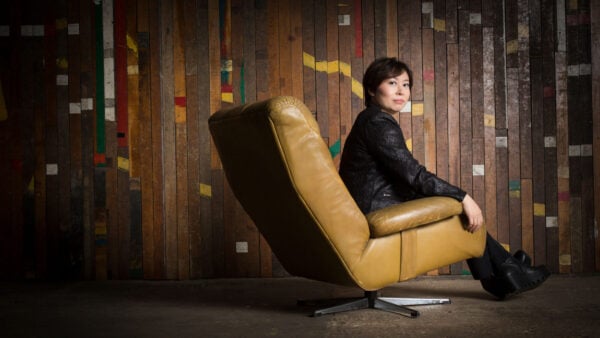
![Early Music, New Era: Veteran Newberry Consort Directors to Retire After Upcoming Concerts david-ellen2[23]](https://www.wfmt.com/wp-content/uploads/2022/04/david-ellen223-600x338.jpg)
